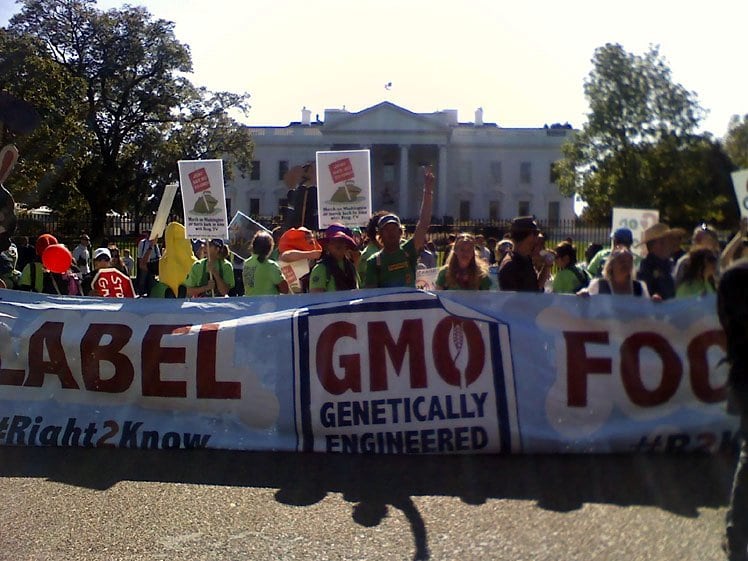Elaine Watson quizzed Gregory Jaffe, CSPI director of biotechnology, on everything from GM labeling initiatives to super weeds…
First of all, why are people suspicious of GM crops, and should they be?
I’d say most Americans are not aware of the issues around GM crops nor do they necessarily have any concerns.
What a lot of people don’t realize is that in ‘conventional’ farming, scientists have been manipulating crop varieties for years to develop new traits - maybe not by introducing new DNA from different organisms - but by inducing DNA mutations via chemicals or blasting plant cells with x-rays and gamma radiation.
And these ‘conventional’ crops do not go through a pre-market approval process, and could potentially present risks just as GM crops might, so everything has to be viewed on a case-by-case basis.
The question we should be asking is not is it genetically engineered, but is it safe to eat, is it introducing new allergens into the food supply, and how is it going to affect the environment?
Are there benefits to GM crops?
Yes, but you can’t generalize, because it all depends on how and where they are used.
For Bt corn or cotton crops [which engineer their own insecticide because they contain genes from the soil bacterium Bacillus thuringiensis], the key benefit is eliminating the need to use chemical pesticides.
For farmers with very small plots, this means greater yields, lower costs, fewer illnesses from pesticide use, and higher income, with reduced harm to insects, birds, and other species. But for other farmers, the key benefit is reduced chemical pesticide use.
For herbicide resistant crops, which contain genes that allow certain herbicides [such as Monsanto’s glyphosate ‘Roundup’ product] to be applied to the crop without harming it, the key benefit is reducing the effort needed to battle weeds. For soy, there can also be benefits around reduced soil tillage.
There are also varieties of squash and papaya that are resistant to certain plant viruses.

Other traits such as drought resistance and oilseeds with [the long chain omega-3 fatty acid] DHA, golden rice and so on are not yet commercialized.
What about the risks? First of all, is there a food safety issue here?
There is no reliable evidence that ingredients made from current GE crops pose any health risk whatsoever.
Other information about current GE proteins also suggests they are unlikely to cause harm. For example, the bacterial protein added to herbicide-tolerant soybeans is similar to a protein already in soybean plants, while the Bt protein in plants comes from a bacterium used by organic food growers for years.
It’s also worth pointing out that the process of producing corn oil, sugar, or HFCS from the crop eliminates virtually all of the transgene and its protein product, so our diets actually expose us to very little of the engineered gene or their protein products [eg. PCR testing of many ingredients from GM crops such as caramel color shows them to be GM-free].
The food-safety tests conducted by GE seed producers and others (but few independent scientists) have not found any evidence of harm, including allergic reactions. Those tests have included short-term, high-dose animal feeding studies of the GE protein (such as the Bt toxins and proteins that confer resistance to herbicides) and determining whether and how quickly the GE protein is broken down in the stomach (which prevents exposure to the rest of the body).
Tests also check the levels of a number of naturally occurring plant components (including nutrients) to make sure they have not been changed in the GE crop. While some of the tests have not used the best available methods, the combined results indicate that current GE crops are safe.
GE crops have been consumed by Americans since 1996 with no apparent ill effects. However, since there is no monitoring of GE food consumption, some adverse effects, such as food allergies, could go undetected.
What about risks to the environment, ‘super weeds’ and resistant pests?

Certain farming practices utilizing GM crops are not sustainable.
The biggest challenge is glyphosate-resistant weeds developing, which means farmers have to use other chemicals to deal with these weeds.
It’s a consequence of over-use, although it’s not specific to GM crops; there have been numerous documented examples of weeds and insects becoming resistant to ‘conventional’ chemical pesticides and herbicides.
For insects that are killed by eating Bt corn or cotton, I’m not aware that any major resistant strains have developed yet. However, this could be a problem in future because a large percentage of farmers are not complying with government refuge requirements, which require them to plant a portion of their farm for non-Bt varieties to act as a refuge.
The biotech-seed industry is also developing Bt corn varieties with multiple genes that attack the same pest, which should reduce the likelihood of developing resistant insects, but the Environmental Protection Agency (EPA) could improve its oversight or the technology’s effectiveness for future generations could be limited.
Is the regulatory system governing GM crops adequate?
Before any GE crop is turned into food, we believe that the FDA should have to formally approve that it is safe for human and animal consumption.
Currently, there is a voluntary notification process, in which the developer of a GE crop submits data that shows it is substantially equivalent to its traditionally bred counterpart and does not pose any new health risk.
FDA reviews the data and raises concerns. However, the process is not as rigorous as it should be, and the FDA often does not get all of the data it needs to perform a fully informed safety review [click here to read the CSPI’s report, 'Holes in the biotech safety net'].
As for the environment, if a crop has been engineered to make its own pesticide, the EPA performs a risk assessment and assesses the safety to humans and animals if they eat the pesticidal compound and establishes a safe tolerance level.
We think that the EPA does a reasonably good job, although there are areas that need improvement. But at least the process is transparent and the public has an opportunity to provide comments before each major decision.
However, USDA’s environmental assessments of engineered crops are not as thorough.
Should foods produced with ingredients from genetically engineered crops be labeled as such?

Consumers should know how their food is made and where it comes from. But as this is not a food safety or a nutritional issue - it’s not like allergens or trans fats - we don’t feel it should be mandated on labels that foods are produced with GM crops.
At CSPI we are very concerned about transparency and the fact that foods are made with GM crops certainly shouldn’t be hidden from consumers, but we’re also concerned about misleading labeling.
You could argue for example that non-GMO label claims are misleading, since they falsely imply that food made without GE ingredients is safer or superior in some other way.
Meanwhile, as I said earlier, the majority of foods that contain highly purified oils, corn sugars and cornstarch ingredients made from GE crops contain essentially no genetically modified DNA or protein [so you’d be putting a GMO label on something that is technically GM-free].
This whole debate we’re having now should serve as a wake-up call to industry to make itself much more available to people to talk about this issue.
FoodNavigator-USA will be interviewing some leading figures in the pro- and anti-GMO camps at the IFT show on camera in Chicago later this month, so stay tuned...
For a much more detailed look at the CSPI's position on biotech crops and GM animals, click here.
Click here for all our coverage on GM issues.
